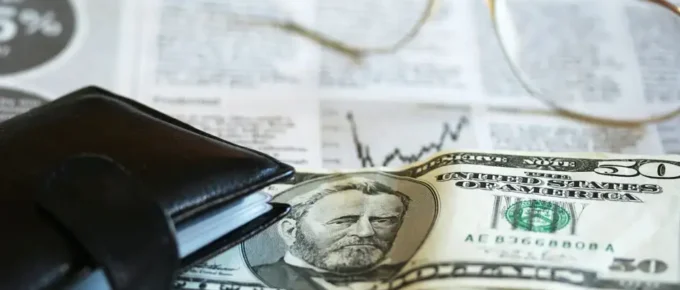
Learn about compensation in Florida personal injury cases and how it’s calculated, so you understand the full value of your claim before accepting a settlement offer.
If you’ve been involved in a car accident, motorcycle accident, slip and fall, premises liability accident, or any other type of accident caused by someone else’s negligence in Florida, you may be wondering how much your case is worth.
The answer to this question depends on a number of factors, including the severity of your injuries, the damages you’ve incurred, your degree of responsibility in causing the accident, and the overall strength of your legal case.
In this article, we’ll explore the various components that contribute to the valuation of a personal injury case in Florida and break down how medical expenses, lost wages, pain and suffering, and other damages are calculated and considered. Additionally, we’ll discuss how Florida’s comparative negligence laws can impact the ultimate value of your claim.
How do you determine the value of a case?
The worth of a personal injury claim depends on multiple factors, each contributing to the final compensation amount. Understanding these elements can help set realistic expectations and aid in negotiating settlements or preparing for court.
Here are the key factors involved:
- Medical expenses. This includes all costs related to the injury, such as hospital bills, medication, surgeries, doctor visits, physical therapy, and any future medical care required. The more severe the injury, the more medical expenses you will have, which will increase the total amount of your claim’s value.
- Lost wages and earning capacity. If the injury leads to missed work, the compensation can cover lost wages. Furthermore, if you suffer a serious or catastrophic injury that affects your ability to earn money in the future, lost earning capacity can also be claimed, factoring in your age, career, skills, and the injury’s impact on your job prospects.
- Pain and suffering. These non-economic damages compensate you for the emotional distress and the physical pain and suffering caused by the injury. Calculating pain and suffering can be complex, often involving a multiplier applied to the economic damages or a per diem approach, depending on the case’s specifics.
- Property damage. If personal property was damaged as a result of the incident, such as in a car accident, the cost of repair or replacement can be included in the claim.
- Impact on quality of life. Compensation may address changes in your lifestyle, including the loss of enjoyment of life and the inability to engage in hobbies or activities that you previously enjoyed.
- Punitive damages. In cases where the defendant’s conduct was particularly egregious or reckless, punitive damages might be awarded to punish the wrongdoer and deter similar future behavior. These are not tied to your losses but can increase the claim’s overall value.
- Degree of fault. Florida operates under a comparative negligence rule, meaning that if the victim is found partly responsible for the accident, their compensation can be reduced by their percentage of fault. We’ll discuss this more below.
- Insurance coverage. The defendant’s insurance policy limits can also impact the claim’s worth. If the damages exceed their policy limits, collecting additional compensation may be challenging unless the defendant has significant personal assets.
- Documentation and evidence. The strength of the documentation and evidence supporting the claim (medical records, witness statements, photos, etc.) can significantly impact its value. Strong, well-documented claims are more likely to result in higher settlements.
- Legal representation. The expertise and negotiation skills of the attorney representing the injury victim can also play a crucial role in determining the claim’s worth. Experienced personal injury attorneys are often able to secure higher compensation through effective negotiation or litigation.
Each personal injury case is unique, and the value of a claim can vary widely based on the specific circumstances and factors involved. Consulting with a knowledgeable personal injury attorney can help you accurately assess how much your case is worth and develop a strategy to seek the compensation you deserve.
Worst car crash injuries: The shocking range of injuries from minor to major
Miami injury attorney discusses the spectrum and shattering severity of car crash injuries.
How does my degree of fault affect my compensation in Florida?
In Florida, the compensation you can receive from a personal injury claim can be significantly affected by your degree of fault due to the state’s comparative fault rule. This legal principle, also known as comparative negligence, means that the amount of compensation you’re entitled to will be reduced by the percentage of fault attributed to you in the accident.
For example:
If you were involved in a car accident where the other driver ran a red light and you were speeding, both parties may be found to be partially at fault.
If the total damages amount to $100,000 and you were found to be 20% at fault for speeding, you would only be eligible to receive 80% of the total damages, or $80,000, reflecting your lesser degree of fault compared to the other driver.
It’s important to note that if you are found to be more than 50% responsible for your injuries in Florida, you won’t be able to collect any compensation.
Understanding Florida’s comparative fault rule is crucial when pursuing a personal injury claim, as it directly impacts the amount of compensation you can recover. An experienced attorney can help you navigate these complexities, argue against unfair fault attributions, and work to maximize the compensation you receive.
Understanding Florida’s “no-fault” car accidents: Facts and limitations
Learn how Florida’s no-fault insurance might impact your compensation after a car accident.
How much does it cost to hire a personal injury attorney in Florida to help with my claim?
In Florida, most personal injury attorneys work on a contingency fee basis, which means they only get paid if you win your case or settle out of court. Typically, the cost of hiring a personal injury attorney in this arrangement is a percentage of the compensation awarded to the client.
The exact percentage can vary depending on the attorney, the complexity of the case, and other factors, but it generally ranges from 33% to 40% of the total recovery amount. For example, if you’re awarded $100,000 in a settlement or court judgment and your attorney’s contingency fee is 33%, your attorney would receive $33,000.
While attorney fees associated with personal injury claims may seem intimidating, it’s important to understand that experienced legal representation can significantly impact the final settlement amount (especially in cases involving catastrophic injuries or wrongful deaths), often far exceeding the cost of their services.
Remember, initial consultations are often free, so be sure to ask questions and understand the potential costs and benefits before committing to a specific attorney.
Looking for the best Miami personal injury attorney to help with your claim?
At Redondo Law, experienced Miami accident attorney Mike Redondo helps his clients by leveraging the unique perspective he gained during his early career representing insurance companies. He effectively uses that insider knowledge to his clients’ advantage, maximizing compensation for accident victims like you.
His Miami-based firm proudly serves both English and Spanish-speaking clients across South Florida, ensuring language doesn’t hinder your pursuit of justice.
Contact Redondo Law today for a free consultation by filling out the form below, and allow us to help you recover the justice and compensation you deserve.



